Best Real Estate Exam Prep Courses to Buy in February 2026
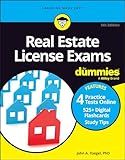
Real Estate License Exams For Dummies: Book + 4 Practice Exams + 525 Flashcards Online


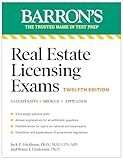
Real Estate Licensing Exams, Twelfth Edition (Barron's Test Prep)


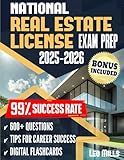
National Real Estate License Exam Prep: Ace on the First Try. An Easy-to-Follow Study Guide, featuring 600 Expertly Explained Questions and Exclusive Tips Designed to Achieve a 99% Success Rate


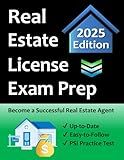
National Real Estate Salesperson License Exam Prep: Everything You Need to Become a Real Estate Agent → Study Guide, Math Calculations, Practice Test Similar to Exam, Term Dictionary & More!


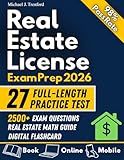
Real Estate License Exam Prep: Ace Your Exam on the First Try – All-in-One Study Guide with Digital Flashcards, Math Review & Full Practice Tests for Complete Confidence


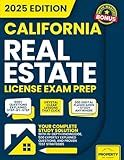
California Real Estate License Exam Prep:: Your Complete Study Solution with In-Depth Knowledge, 500 Expertly Explained Questions and Proven Test Strategies (Real Estate License Exam Prep Guides)


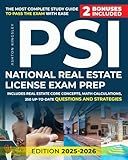
PSI National Real Estate License Exam Prep: The Most Complete Study Guide to Pass the Exam With Ease | Includes Real Estate Core Concepts, Math Calculations, 250 Up-To-Date Questions and Strategies


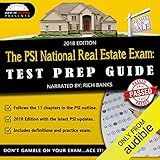
The PSI National Real Estate License Exam: Test Prep Guide


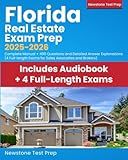
Florida Real Estate Exam Prep 2025-2026: Complete Manual + 400 Questions and Detailed Answer Explanations (4 Full-Length Exams for Sales Associates and Brokers)


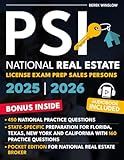
PSI NATIONAL REAL ESTATE EXAM PREP 2025-2026- SALES PERSONS: Ace Your Exam on the First Try – All-in-One Study Guide with Math Review and Full Practice Tests for Complete Success and Con-fidence


The road to becoming a real estate broker isn’t easy to navigate. While a college education is helpful, it is not necessary. Anyone who wants to become a real estate agent needs to get a state-approved license. Even though the process is specific to each state, there are some general rules.
What Are the Real Estate Education Requirements?
According to the U.S. Bureau of Labor Statistics, applicants need at least a high school diploma. Yet, they can also pursue a bachelor’s degree in finance and real estate. In fact, most states require a completed postsecondary course in real estate and finance. Conversely, certain states only need the candidates to be of a certain age (18–19 years). As long as they meet that criterion, they do not need a high school diploma.
Undergraduate courses related to real estate include:
● property development
● real estate investments
● property management
● real estate law
● real estate appraisal
Moreover, one can enroll in certificate programs offered by several institutions.
Schools and Pre-Licensing Education
The candidate needs to complete between 60 and 90 hours of basic real estate undergraduate education. It doesn’t matter if the classes are conducted online or in person. What matters is that the school is accredited and approved by the state.
Then, a candidate has to take a pre-licensing course. At some schools, they have to take a certain number of classes per week. On the other hand, they can complete the courses at their own pace at other schools. The two options allow a candidate to balance their education and their lifestyle. Similarly, the price of courses also ranges from $200 to $1000.
What Is the Exam Like?
Upon completing the pre-licensing courses, candidates need to take a final exam. Usually, they have to take it within a certain time frame specified by each state. For example, Florida gives candidates up to two years. Then again, California requires the candidate to wait 18 days after receiving the course materials.
Usually, a candidate is given between 90 and 210 minutes to complete the licensing exam. Of course, that depends on the state. Likewise, the smallest license fee is $15, while the largest is $60.
The test will cover both state and national laws and principles. It contains about 100–140 multiple-choice questions. Candidates have to answer 70% of the questions correctly. Yet that varies between states. For example, some states require as low as 60%, while others require 75%.
Many agents agree that the exam is hard, regardless of the state. First, the candidate has to memorize a lot of information. Second, those with no prior experience in real estate or law won’t find the exam intuitive at all. The average pass rate for the six largest states in the U.S varies between 44% and 72%. It should be noted that the statistics aren’t there to scare the candidates away. Rather, they should serve as a reminder of how seriously they should prepare for the exam.
Final Thoughts
Ultimately, obtaining a real estate license entails a lot of dedication, attention, and time. While the road may be bumpy, crossing the finish line is quite rewarding. The end result is an unlimited number of possibilities for turning a profit.
